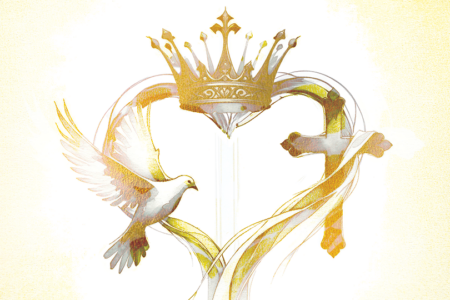How Were People Saved in the Old Testament?
When Adam and Eve first sinned, God promised that one of Eve’s descendants would crush Satan and provide salvation for sinful humanity (Gen. 3:15). Even Job, who lived before the Hebrew patriarchs, knew his Redeemer lived (Job 19:25–27).
But how were people saved before Christ died and rose again? Some believed they were saved by works or by keeping the Mosaic Law. But the apostle Paul wrote, “No one is justified by the law in the sight of God” (Gal. 3:11). Rather, “by grace [we] have been saved through faith” (Eph. 2:8).
To illustrate salvation by grace through faith, Paul wrote, “Abraham believed God, and it was accounted to him for righteousness” (Rom. 4:3; cf. Gen. 15:6). Abraham received salvation 400 years before the Law was given, based on his faith alone. Jesus said, “Abraham rejoiced to see My day, and he saw it and was glad” (Jn. 8:56).
Quoting Psalm 32:1–2, Paul then noted that when King David repented of his sinful affair with Bathsheba (2 Sam. 11—12), God forgave him and bestowed His righteousness on him, not because of David’s works, but because of his faith (Rom. 4:6–8). David called Jehovah “the God of my salvation” (Ps. 51:14).
Thus, the gospel is not exclusively a New Testament message. It was first revealed in the Old Testament, showing salvation has always come by grace through faith alone (Gal. 3:8–9).
To cover their sins, the ancient Israelites offered substitutionary blood sacrifices per God’s command (Lev. 17:11; cf. Heb. 9:22). Each sinner symbolically transferred his or her sins to an animal by laying hands on its head. The animal was sacrificed, giving its life as a substitute for the Israelite’s life. A priest sprinkled the animal’s blood on the altar, covering the individual’s sin.
The blood atonement did not remove sin (cf. Heb. 10:1–4), but the covering protected the individual from divine judgment that day. No matter how meticulously the Levitical priests performed their duty, they always bore a sense of guilt and defilement and needed atonement continually.
Christ’s perfect blood sacrifice superseded the animal sacrifices under the Mosaic Covenant. Through His death, He became “the Mediator of the new covenant, . . . for the redemption of the transgressions under the first covenant, that those who are called may receive the promise of the eternal inheritance” (9:15). Christ secured eternal redemption for all believers, including those called under the first covenant.
Both the Old and New Testaments teach there is only one way of salvation: by God’s grace through faith alone.








